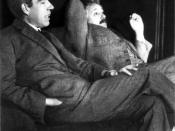The correlation between birth order and personality have intrigued many. Are first-borns selfish overachievers? Are all middle children destined to be like Jan Brady? Do last-borns really turn out to be "the favorites" of the parents? These and many other questions have and are still being explored by psychologists. The renowned psychiatrist Dr. Alfred Adler wrote that a person's position in the family leaves an undeniable "stamp" on his or her "style of life". Research has shown that birth order does indeed affect a child; however, it does not automatically shape personality. If it did, life would be much more predictable. Birth order doesn't explain everything about human behavior. Personality is affected by many different factors, such as heredity, family size, the spacing and sex of siblings, education, and upbringing. However, there is an awful lot of research supporting the affect of birth order on personality. There are four basic classifications of birth order: the oldest, the only, the middle, and the youngest.
Each has its own set of advantages, as well as its own set of disadvantages. While the birth order factor isn't always exact, it does give many clues about why people are the way they are.
Stereotypically, first-borns are said to be "perfectionists". First-born children tend to be high achievers in whatever they do. Some traits customarily used to label first born children include reliable, conscientious, list maker, well organized, critical, serious, scholarly, self-assured, good leadership ability, eager to please, and nurturing. Also, first-born children seem to have a heightened sense of right and wrong. It is common in most books about birth order that first-born children get more press than only, middle, and youngest children. This can be explained by the fact that the first born child is typically the success story in the family. They...


